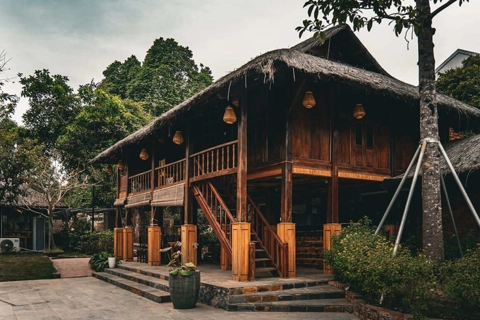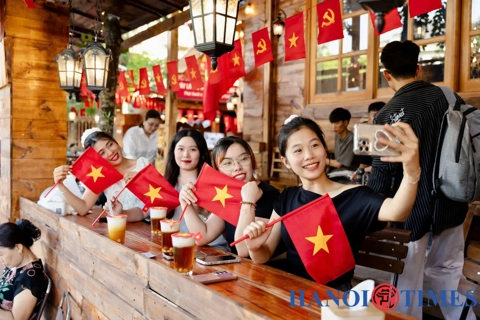Travel
Can Tho supports tourism development in Mekong Delta
Jun 14, 2018 / 12:02 PM
The traffic connectivity is one of the factors hindering the Mekong Delta’s tourism sector.
This was announced by Christopher Lewis Malone, Boston Consulting Group (BCG) Managing Director in Vietnam at the working session with the leaders of Can Tho city.
The working session aims to discuss plans and measures to promote tourism development in the city and in the whole region.
Can Tho International Airport was designed to serve the whole region, but only four localities are connected to the airport. In the field of waterway tourism, Ninh Kieu wharf of Can Tho only serves about 4,000 visitors per day, while Ha Long port in the northern province of Quang Ninh averagely serves 22,000 visitors per day, according to BCG Managing Director.
More importantly, the Mekong Delta is not a main destination for visitors, but is just a stopover of tourists en route to Ho Chi Minh City – the largest economic and cultural hub in the southern region, he added.
At the working session, representatives of the BCG proposed four groups of measures to push tourism development in the Mekong Delta in the coming time. Firstly, focusing on developing tourism along rivers. Secondly, sightseeing tours. Thirdly, focusing on developing historical sites, learn about local customs and cuisine and enjoy daily life of locals. The last one is adventure tours with diverse games such as canoeing on rivers, exploring the regional land with hot air balloons.
Regarding tourism infrastructure, Malone stressed that it is necessary to expand and connect air routes between Can Tho, Phu Quoc, Ca Mau and Co Ong airports to establish a strategic transport system throughout the region.
Regional provinces and cities should pay attention to building and fine-tuning integrated aviation services such as taking off and landing services, airplane parking, security screening systems, cargo, check-in counters, luggage conveyors, and ground services.
The whole region should have at least 20 international flights and 10 domestic flights within the next ten years.
On his side, Vo Thanh Thong, Chairman of the municipal People’s Committee stressed that the project plays an important role in the overall development of the region. He hoped many suitable models will be built within the framework of the project to help the Mekong Delta become a leading destination in Asia in terms of tourism on rivers.
The city is working with Novaland Group to finance tourism development projects in the Mekong Delta that are invested directly in Can Tho, Vinh Long province and other localities in the region, Thong added.
The projects are hoped to create a momentum for sustainable development and create jobs for local residents, contributing to socio-economic development of the locality and helping it attract more investment, he said.
The working session aims to discuss plans and measures to promote tourism development in the city and in the whole region.

Mekong Delta tourism.
|
More importantly, the Mekong Delta is not a main destination for visitors, but is just a stopover of tourists en route to Ho Chi Minh City – the largest economic and cultural hub in the southern region, he added.
At the working session, representatives of the BCG proposed four groups of measures to push tourism development in the Mekong Delta in the coming time. Firstly, focusing on developing tourism along rivers. Secondly, sightseeing tours. Thirdly, focusing on developing historical sites, learn about local customs and cuisine and enjoy daily life of locals. The last one is adventure tours with diverse games such as canoeing on rivers, exploring the regional land with hot air balloons.
Regarding tourism infrastructure, Malone stressed that it is necessary to expand and connect air routes between Can Tho, Phu Quoc, Ca Mau and Co Ong airports to establish a strategic transport system throughout the region.
Regional provinces and cities should pay attention to building and fine-tuning integrated aviation services such as taking off and landing services, airplane parking, security screening systems, cargo, check-in counters, luggage conveyors, and ground services.
The whole region should have at least 20 international flights and 10 domestic flights within the next ten years.
On his side, Vo Thanh Thong, Chairman of the municipal People’s Committee stressed that the project plays an important role in the overall development of the region. He hoped many suitable models will be built within the framework of the project to help the Mekong Delta become a leading destination in Asia in terms of tourism on rivers.
The city is working with Novaland Group to finance tourism development projects in the Mekong Delta that are invested directly in Can Tho, Vinh Long province and other localities in the region, Thong added.
The projects are hoped to create a momentum for sustainable development and create jobs for local residents, contributing to socio-economic development of the locality and helping it attract more investment, he said.








